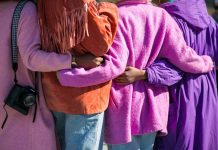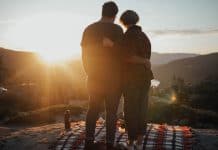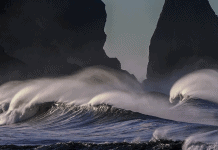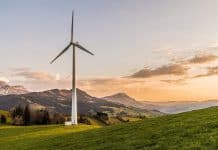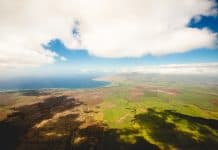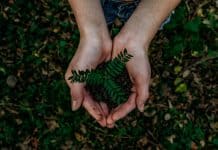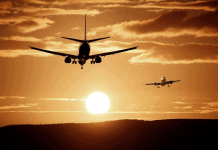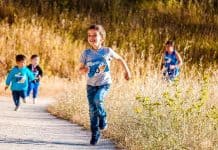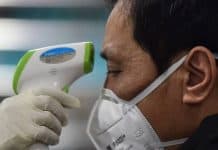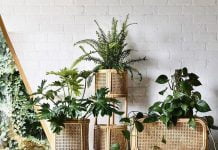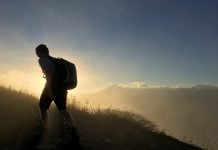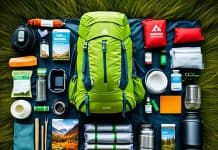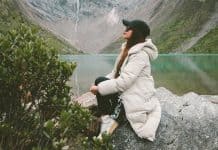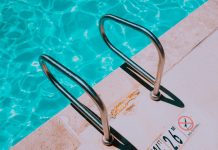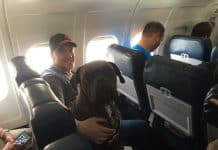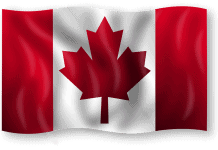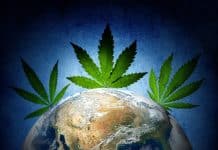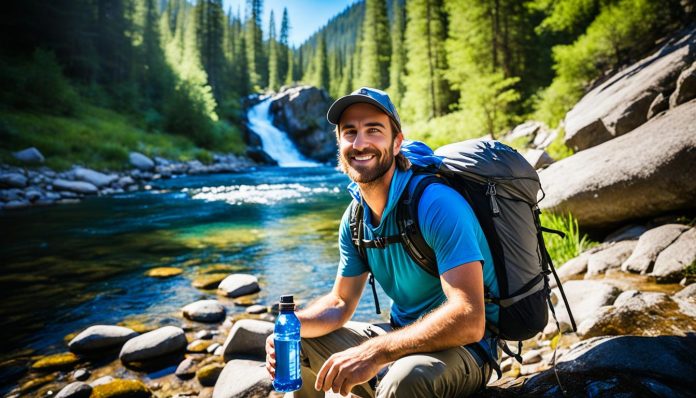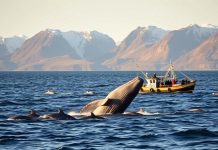Heading out for a camping trip means you must get your water right. Aim to bring at least 2 gallons (about 9 liters) of water for each adult, daily. You might need more or less water based on the weather, how active you’ll be, and anyone’s special health needs. It’s better to have too much water than not enough when you’re in the wild.
Think about all your water needs when planning your camping trip. You’ll need water for drinking, cooking, and cleaning. Activities you have planned, the weather, and if there’s natural water nearby will shape how much water you need.
Key Takeaways
- Ensure you have at least 2 gallons of water per adult per day for combined hydration and hygiene purposes.
- Account for additional water needs based on the climate and altitude of your camping location.
- Consider the intensity and type of activities to adequately adjust your water supply.
- Plan for extra supplies in case of emergency or unexpected needs.
- Always prioritize safety and health by ensuring you have enough clean water for the duration of your camping trip.
Understanding the Essential Role of Water in Camping
Water is vital in camping. It’s important for staying alive and having fun. It helps our bodies in many ways, like cooling us down and moving nutrients. So, keeping hydrated while camping is key to staying healthy.
We need water for drinking, but also for cooking and cleanliness. Not drinking enough can cause serious problems fast. Signs of dehydration include feeling tired and dizzy. It’s important to know these signs and act fast.
In some places, finding clean water can be hard. Knowing how to get and clean water is crucial for long camping trips. Lack of water can be more dangerous than going without food.
| Function | Amount of Water Needed | Reason for Necessity |
|---|---|---|
| Hydration | 2-3 liters per day per person | Critical for metabolic functions and temperature regulation |
| Cooking | 1-2 liters per day | Required for preparing meals and hot beverages |
| Cleaning | 0.5-1 liters per day | Essential for washing dishes and personal hygiene |
Knowing the importance of water for camping is just the start. How you prepare and use water is also crucial. Always have some extra water or a way to make water safe. This will keep you from getting dehydrated and make sure you’re safe out there.
How Much Water to Bring Camping
Heading out for a camping trip means you need to plan well, especially with how much water to carry. You’ll need it for drinking, cooking, and cleaning. Knowing your water needs for each activity ensures a safe and fun trip.
Calculating Water Needs for Hydration
Figuring out how much water you’ll drink while camping is a key part. It’s best for each person to have 2 liters a day. Think about how long you’ll be camping, the weather, and what you’ll be doing. This helps you know the right amount to bring.
Extra Water for Cooking and Clean-Up Purposes
Besides drinking, don’t forget the water for cooking and washing up. The amount you’ll need depends on how many of you there are and what you plan to eat. It’s also good to have extra water for washing dishes and staying clean.
Adjusting Water Supply Based on Activity Levels
More active days mean you’ll need more water. If you’re hiking, biking, or climbing, make sure to drink more. Watch how hard and how long you’re active to stay properly hydrated.
It’s always smart to have more water than you think you’ll need. Being over-prepared is better than running out of water. Hydration should be the top thing on your camping list. Make sure you have enough water for what you’ll be doing.
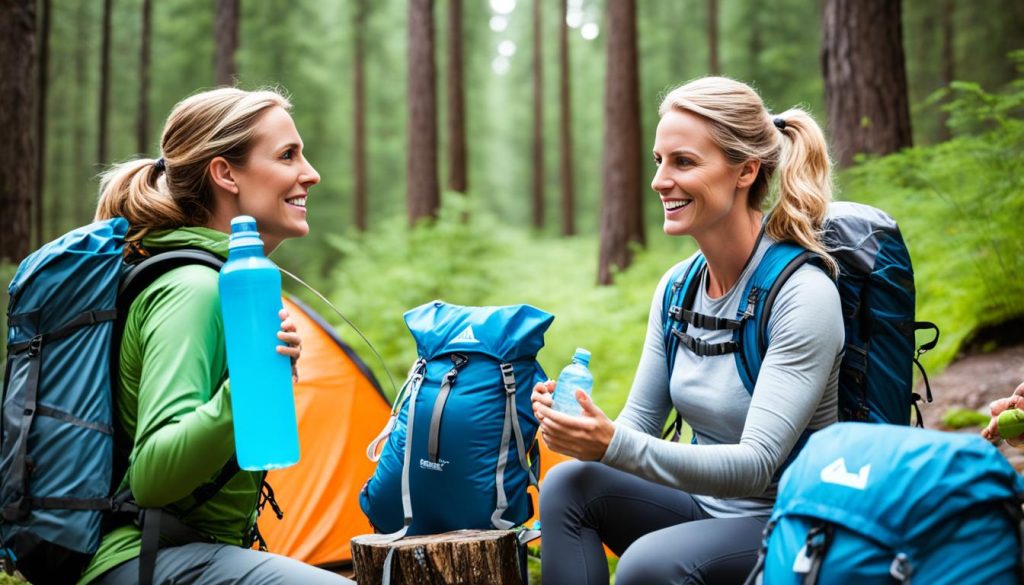
Practical Tips for Water Storage and Purification Outdoors
Heading out on a camping trip? Make sure you have enough clean water. Use refillable bottles or collapsible jugs for water storage. These save space and are good for the planet. Always pick containers that are strong, won’t leak, and are easy to carry. This makes sure you can drink water easily while camping.
Traveling to places with iffy water sources? It’s key to purify your water. Bring a portable water filter or purification tablets. Know how to boil water to kill germs. Each way helps keep you healthy from water scares. Follow local rules about water use at your campsite. This helps you and the nature around you stay safe.
Want to keep things clean without hurting the environment? Use biodegradable soaps for dishes. It’s smart to look up ways to keep water clean before you go. Being ready for any situation in nature is important. Putting water safety first makes your camping trip fun and eco-friendly.
